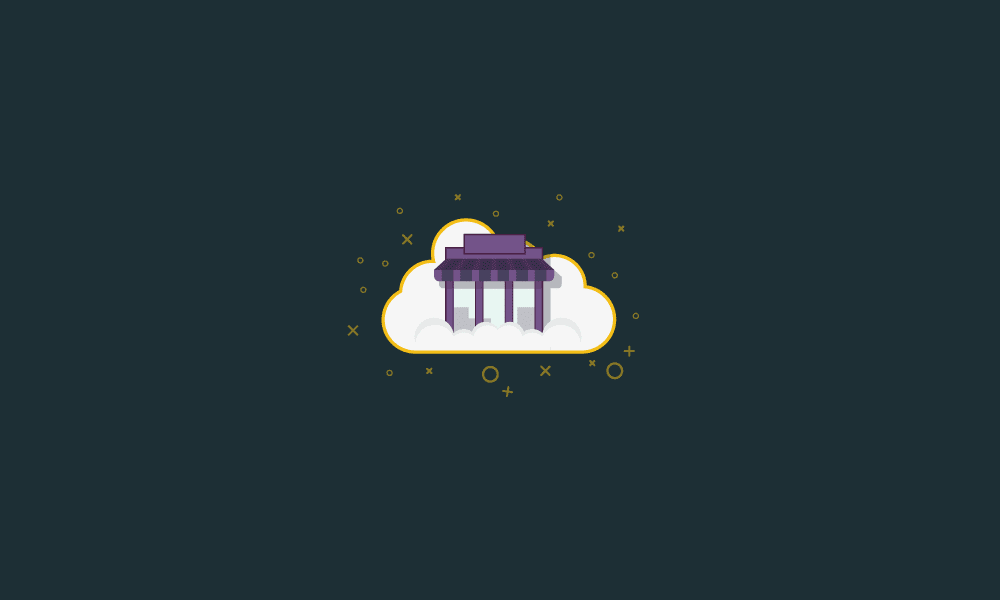Why to buy into the cloud for retail technology
Whether you realize it or not, cloud computing has become a part of everyday life. In the simplest terms, cloud computing means storing and accessing data and programs over the Internet instead of a computer hard drive. Facebook and Twitter are basically cloud communication services. YouTube, Hulu and Netflix are all entertainment services powered by cloud computing. When you perform a Google search, the power of cloud computing delivers the best results to you.
Business value of the cloud
It’s not all fun and games and Google, cloud computing has a real business value, especially for the modern retail and supply chain industries. In the past, businesses that wanted powerful computing power had no choice but to invest in the software, servers, IT infrastructure and staff needed for it. Now cloud computing allows businesses of all shapes and sizes to access the businesses services they need, while also making it easy to share valuable information, such as transaction documents, inventory information and more..
Cloud computing has a variety of general benefits for business. Backing up data to a cloud-based system can aid in data disaster recovery. By accessing data from multiple points into a centralized portal, cloud computing can increase collaboration across departments and break down silos. Importantly, cloud computing can be incorporated by companies large and small, and can offer the flexibility needed for all of them to scale quickly.
With cloud computing, retailers and vendors specifically are able to accomplish a number of things that can benefit them:
- Find and sync up-to-date inventory information. When a store sells a particular item, that sale will cause the retailer’s inventory count to adjust and reflect its new quantity to all the other stores looking for that particular item. This is especially useful for retailers that offer buy online, pickup in store (BOPIS) and in-store fulfillment, as well as brands and suppliers that provide drop shipping for retailers.
- Exchange inventory data and product information. If a retailer is dealing with dozens of suppliers, they can either receive dozens of data files each day, or the suppliers can upload their data to the cloud service where it’s easily accessed by the retailer.
- Share retail sales data. Similarly, retailers can upload their point of sale (POS) information so suppliers can analyze their own items and make recommendations that help the retailers move more products.
- Improve the customer experience. Cloud computing makes it easier for retail associates and customer service representatives to share product updates, news and other information, such as whether a certain size of pants runs larger than its label specifies, or smaller.
Costs of in-house IT tech
Some companies may try to handle a lot of their IT infrastructure, retail technology and systems on their own. However, that can consume a lot of time and resources, such as hiring a highly-trained staff, investing in the required technology infrastructure, purchasing specialized software or developing it on your own, providing backup contingency plans, including off-site backups and a backup power generator in case the power fails at your primary location.
Additionally, you’ll have to plan for the time and expenses of your team performing upgrades to software and hardware as needed. You’ll also spend a lot of time replacing and updating your equipment on an ongoing basis. If you’re doing it right, you’ll upgrade a server roughly every three years. Depending on the size of your operation, that could be a few dozen servers per year. Don’t forget upgrading the software, customizing it for your operation, and the cost of powering the servers and equipment.
Savings in cloud computing
Cloud computing services, on the other hand, are all managed, updated, upgraded and maintained by a third party. And since all a cloud computing service does all day is serve their customers, their primary goal is to keep everything up-to-date, well-maintained and formidably protected. The service will manage the software, keep it running, and they include power costs in the price of your subscription service.
With the bulk of your computing services happening in the cloud, your IT staff can be considerably smaller, which can reduce overhead. Rather than having several dedicated staff members whose sole job it is to run the network, you can pay a cloud-computing provider a fraction of the staff budget to achieve the same effect. Your IT staff can focus on taking care of the smaller, on-site IT needs while your cloud services takes on the bulk of the work.
It’s true that some retailers have embraced in-house information and retail technology evolution as a part of their brand strategy – but there are also many other retailers who simply prefer to focus on selling product rather than becoming a technology company. These retailers just want to sell products, they don’t want to get caught up spending too much time and effort in the IT services business. When these retailers (and suppliers) have the option to hand off much of their EDI technology needs to a proven cloud service like SPS, they can focus on making their customers happy and making their business bottom line healthier.
Cloud computing services can help you reduce costs, improve connectivity, streamline processes and improve the supply chain. The cloud can also help you gain flexibility, improve collaboration and meet customer expectations. Imagine the possibilities if you put the cloud to work for your business.
SPS Commerce has helped thousands of retailers and suppliers around the world realize more of their potential through cloud computing services, such as EDI, data analytics, sourcing vendors, adding catalog assortment, item data management and more . Please speak to one of our representatives for more information or to see a demonstration.


RELATED POSTS
4 strategies to conquer lean inventor...
The power of accurate product attributes
Solve the item data dilemma